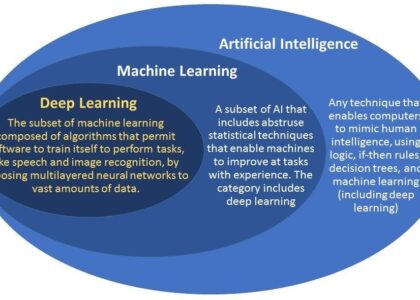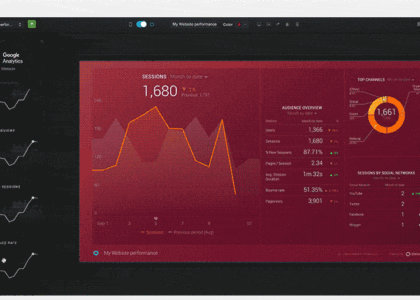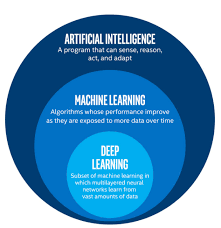The Power of SaaS Data Analytics
In today’s rapidly evolving business landscape, data has become one of the most valuable assets for organisations across industries. The ability to collect, analyse, and derive insights from data is crucial for making informed decisions and gaining a competitive edge. Software as a Service (SaaS) data analytics platforms have emerged as powerful tools that enable businesses to harness the full potential of their data.
What is SaaS Data Analytics?
SaaS data analytics refers to cloud-based software applications that allow businesses to process, analyse, and visualise large volumes of data without the need for on-premises infrastructure. These platforms offer a range of features such as data integration, advanced analytics, machine learning capabilities, and interactive dashboards.
The Benefits of SaaS Data Analytics
Scalability: SaaS data analytics platforms can easily scale up or down based on the changing needs of a business. This flexibility allows organisations to handle increasing data volumes and user demands without significant investments in hardware or software upgrades.
Cost-Effectiveness: By opting for a SaaS model, businesses can avoid upfront costs associated with purchasing and maintaining on-premises infrastructure. Instead, they pay a subscription fee based on usage, making it a cost-effective solution for organisations of all sizes.
Accessibility: With SaaS data analytics platforms accessible via the internet, users can securely access real-time insights from anywhere at any time. This accessibility promotes collaboration among teams and enables quick decision-making based on up-to-date information.
Use Cases of SaaS Data Analytics
SaaS data analytics finds applications across various industries and business functions:
- Marketing: Analysing customer behaviour patterns to tailor marketing campaigns for better engagement.
- Sales: Identifying sales trends and forecasting future revenues based on historical data.
- Finance: Conducting risk analysis and fraud detection through advanced analytics algorithms.
- Operations: Optimising supply chain management by monitoring key performance indicators in real-time.
In Conclusion
SaaS data analytics empowers businesses to unlock valuable insights from their data efficiently and cost-effectively. By leveraging cloud-based platforms with advanced analytical capabilities, organisations can drive innovation, improve decision-making processes, and stay ahead in today’s competitive market landscape.
Understanding SaaS Data Analytics: Key Questions and Insights for Businesses
- What is SaaS data analytics?
- How does SaaS data analytics differ from traditional on-premises solutions?
- What are the key benefits of using SaaS data analytics for businesses?
- How secure is data stored and processed on SaaS data analytics platforms?
- Can SaaS data analytics platforms handle large volumes of data effectively?
- What features should I look for in a SaaS data analytics platform before choosing one for my business?
- How can SaaS data analytics help improve decision-making processes within an organisation?
- Are there any industry-specific use cases where SaaS data analytics has proven to be particularly effective?
- What are the cost implications of implementing a SaaS data analytics solution compared to traditional methods?
What is SaaS data analytics?
SaaS data analytics, short for Software as a Service data analytics, is a cloud-based software solution that enables businesses to process, analyse, and visualise large volumes of data without the need for on-premises infrastructure. This innovative technology offers organisations access to a range of features, including data integration, advanced analytics tools, machine learning capabilities, and interactive dashboards. By leveraging SaaS data analytics platforms, businesses can efficiently extract valuable insights from their data to make informed decisions and gain a competitive edge in today’s dynamic business environment.
How does SaaS data analytics differ from traditional on-premises solutions?
SaaS data analytics differs from traditional on-premises solutions in several key ways. Unlike on-premises solutions that require businesses to invest in and maintain physical hardware and software infrastructure, SaaS data analytics is cloud-based, offering scalability and flexibility without the need for on-site resources. SaaS data analytics also provides easier accessibility, allowing users to securely access and analyse data from anywhere with an internet connection. Additionally, SaaS data analytics platforms often offer more advanced features such as real-time processing, machine learning capabilities, and interactive visualisations, enabling businesses to derive valuable insights more efficiently and cost-effectively compared to traditional on-premises solutions.
What are the key benefits of using SaaS data analytics for businesses?
Businesses can reap numerous benefits from leveraging SaaS data analytics. One key advantage is the scalability offered by SaaS platforms, allowing businesses to effortlessly adjust to changing data volumes and user demands without the need for extensive infrastructure investments. Additionally, the cost-effectiveness of SaaS data analytics eliminates upfront expenses associated with on-premises solutions, offering a subscription-based model that suits organisations of all sizes. The accessibility of SaaS data analytics enables real-time access to insights from anywhere, fostering collaboration and facilitating swift decision-making based on up-to-date information.
How secure is data stored and processed on SaaS data analytics platforms?
Ensuring the security of data stored and processed on SaaS data analytics platforms is a top priority for businesses considering adopting such solutions. SaaS providers implement robust security measures, including encryption, access controls, data backups, and compliance with industry standards such as GDPR and ISO 27001, to protect sensitive information. Regular security audits and updates are conducted to mitigate risks and enhance data protection. By entrusting their data to reputable SaaS data analytics platforms with stringent security protocols in place, businesses can have confidence in the confidentiality and integrity of their valuable information.
Can SaaS data analytics platforms handle large volumes of data effectively?
When it comes to handling large volumes of data, SaaS data analytics platforms are designed to excel. These platforms leverage cloud-based infrastructure and scalable architecture to efficiently process and analyse vast amounts of data. With features such as parallel processing, distributed computing, and advanced storage solutions, SaaS data analytics platforms can effectively manage the complexities of big data. By providing high-performance capabilities and elastic scalability, these platforms ensure that businesses can derive valuable insights from their data regardless of its size, making them a reliable choice for organisations seeking to harness the power of big data analytics.
What features should I look for in a SaaS data analytics platform before choosing one for my business?
When selecting a SaaS data analytics platform for your business, it is essential to consider several key features to ensure that it meets your specific needs. Firstly, look for robust data integration capabilities that allow seamless integration with various data sources to ensure comprehensive analysis. Secondly, advanced analytics tools such as machine learning algorithms and predictive modelling can provide valuable insights for informed decision-making. Additionally, interactive and customisable dashboards enable users to visualise data effectively and derive actionable insights. Scalability, security features, user-friendly interface, and responsive customer support are also crucial factors to evaluate when choosing a SaaS data analytics platform that aligns with your business requirements and goals.
How can SaaS data analytics help improve decision-making processes within an organisation?
SaaS data analytics can significantly enhance decision-making processes within an organisation by providing valuable insights derived from comprehensive data analysis. By leveraging advanced analytical tools and machine learning algorithms, SaaS platforms can process large volumes of data in real-time, enabling businesses to identify trends, patterns, and correlations that may not be apparent through traditional methods. This data-driven approach empowers decision-makers to make informed and strategic choices based on accurate information, leading to more effective strategies, improved operational efficiency, and a competitive edge in the market.
Are there any industry-specific use cases where SaaS data analytics has proven to be particularly effective?
In the realm of SaaS data analytics, there are numerous industry-specific use cases where its effectiveness has been prominently demonstrated. For instance, in the healthcare sector, SaaS data analytics plays a crucial role in analysing patient data to enhance clinical outcomes and streamline operations. Similarly, in the retail industry, SaaS data analytics is utilised to gain insights into consumer behaviour, optimise inventory management, and personalise marketing strategies. Moreover, in finance and banking, SaaS data analytics is instrumental in detecting fraudulent activities, assessing risk factors, and improving customer experience through personalised financial recommendations. These industry-specific applications showcase the versatility and impact of SaaS data analytics across diverse sectors.
What are the cost implications of implementing a SaaS data analytics solution compared to traditional methods?
When considering the cost implications of implementing a SaaS data analytics solution compared to traditional methods, it is essential to factor in various aspects. SaaS data analytics typically involves a subscription-based model, which can be more cost-effective than traditional on-premises solutions that require significant upfront investments in hardware, software, and maintenance. Additionally, SaaS solutions offer scalability, allowing businesses to pay for the resources they use and easily adjust as their needs evolve. While initial costs may vary, the long-term benefits of reduced infrastructure expenses and increased operational efficiency make SaaS data analytics an attractive option for organisations looking to maximise their data analysis capabilities while minimising costs.






